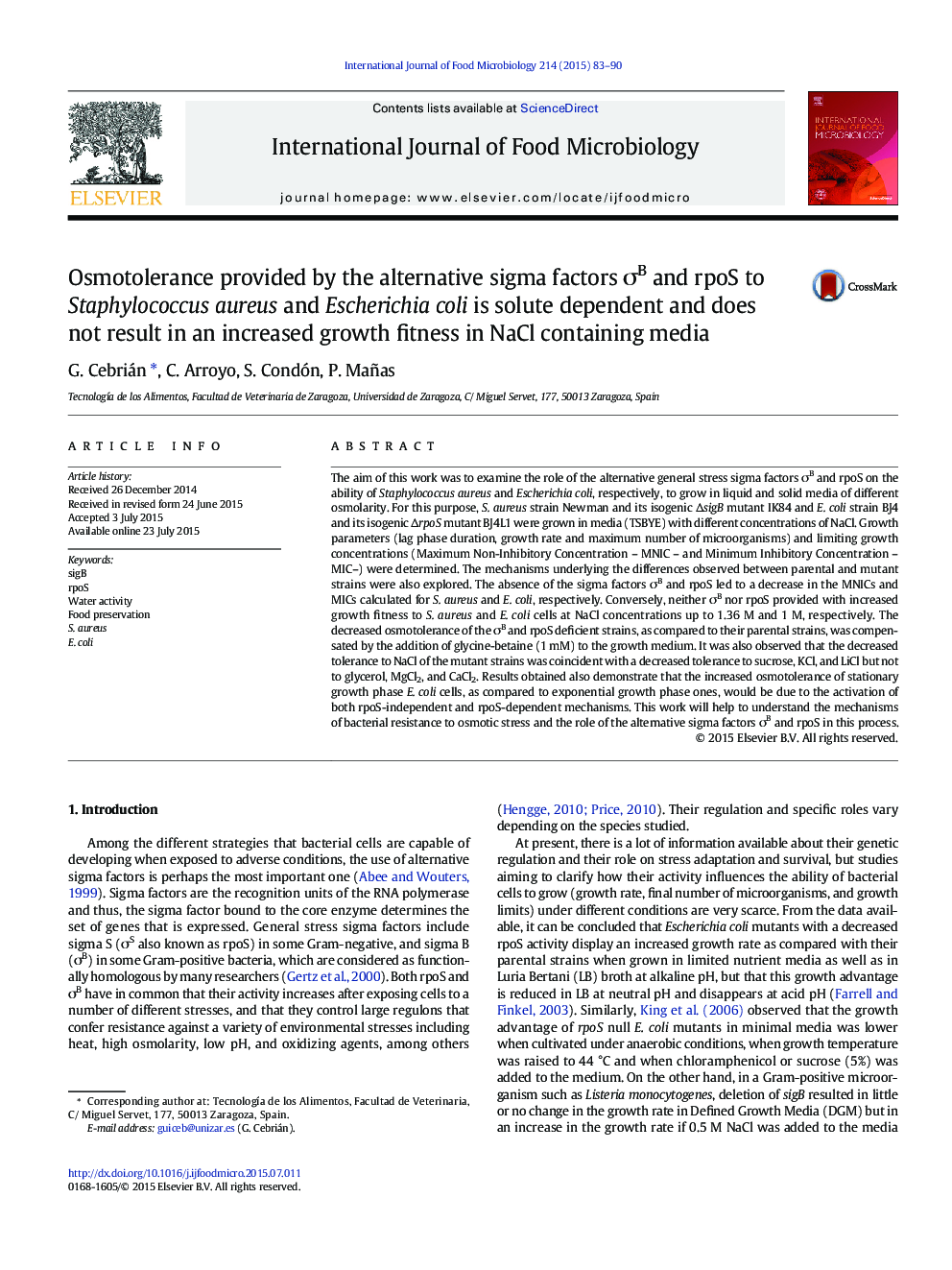| کد مقاله | کد نشریه | سال انتشار | مقاله انگلیسی | نسخه تمام متن |
|---|---|---|---|---|
| 4366463 | 1616569 | 2015 | 8 صفحه PDF | دانلود رایگان |

• The absence of sigB/rpoS results in a decreased bacterial osmotolerance.
• Neither σB nor rpoS provide increased growth fitness's in NaCl added media.
• The addition of glycine-betaine can compensate the absence of sigB or rpoS.
• Osmotolerance conferred by σB and rpoS is solute dependent.
• Growth-phase-dependent E. coli osmotolerance is partly rpoS-independent.
The aim of this work was to examine the role of the alternative general stress sigma factors σB and rpoS on the ability of Staphylococcus aureus and Escherichia coli, respectively, to grow in liquid and solid media of different osmolarity. For this purpose, S. aureus strain Newman and its isogenic ΔsigB mutant IK84 and E. coli strain BJ4 and its isogenic ΔrpoS mutant BJ4L1 were grown in media (TSBYE) with different concentrations of NaCl. Growth parameters (lag phase duration, growth rate and maximum number of microorganisms) and limiting growth concentrations (Maximum Non-Inhibitory Concentration – MNIC – and Minimum Inhibitory Concentration – MIC–) were determined. The mechanisms underlying the differences observed between parental and mutant strains were also explored. The absence of the sigma factors σB and rpoS led to a decrease in the MNICs and MICs calculated for S. aureus and E. coli, respectively. Conversely, neither σB nor rpoS provided with increased growth fitness to S. aureus and E. coli cells at NaCl concentrations up to 1.36 M and 1 M, respectively. The decreased osmotolerance of the σB and rpoS deficient strains, as compared to their parental strains, was compensated by the addition of glycine-betaine (1 mM) to the growth medium. It was also observed that the decreased tolerance to NaCl of the mutant strains was coincident with a decreased tolerance to sucrose, KCl, and LiCl but not to glycerol, MgCl2, and CaCl2. Results obtained also demonstrate that the increased osmotolerance of stationary growth phase E. coli cells, as compared to exponential growth phase ones, would be due to the activation of both rpoS-independent and rpoS-dependent mechanisms. This work will help to understand the mechanisms of bacterial resistance to osmotic stress and the role of the alternative sigma factors σB and rpoS in this process.
Journal: International Journal of Food Microbiology - Volume 214, 2 December 2015, Pages 83–90